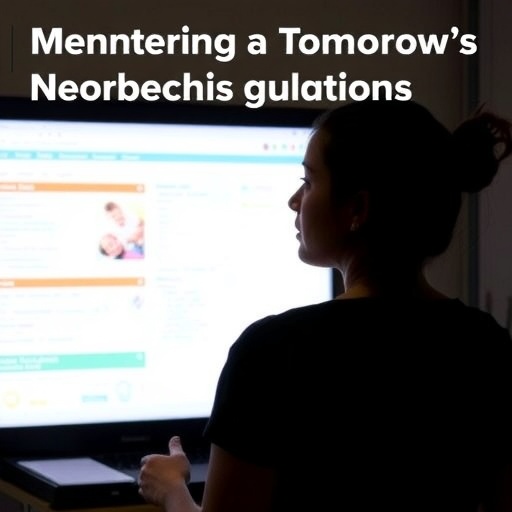In the ever-evolving field of neonatology, the journey from medical school graduate to fellowship-trained neonatologist is complex, competitive, and intensely demanding. Navigating this path requires not only academic excellence but also strategic guidance, mentorship, and an astute understanding of the landscape of fellowship applications. A recent seminal study spearheaded by Hill, Vergales, Hoffman, and their colleagues sheds critical light on how program directors—the individuals who hold the keys to coveted neonatology fellowship positions—advise applicants and their mentors to optimize chances of success. This comprehensive investigation offers a rare insider’s perspective on the nuanced criteria shaping trainee selection, with implications that reach well beyond the immediate field.
At its core, the study underscores the pivotal role of mentorship in shaping future neonatology leaders. Mentorship in this context transcends traditional academic advising; it involves preparing applicants with an intentional focus on tailoring their professional narratives to the expectations and culture of diverse fellowship programs. According to program directors, effective mentors foster not only medical knowledge and clinical competence but also resilience, emotional intelligence, and authentic commitment to neonatal care, qualities deemed indispensable for thriving in this rigorous specialty.
The authors delve into the multifactorial components that neonatology fellowship programs weigh when evaluating applications. Beyond the expected metrics like USMLE scores, research productivity, and letters of recommendation, program directors emphasize the significance of an applicant’s experiential depth and alignment with program missions. Extracurricular activities, leadership roles, and documented community engagement emerge as critical dimensions that enrich an applicant’s profile, signaling a comprehensive readiness for fellowship challenges.
Crucially, the study reveals that program directors valorize a candidate’s demonstrated passion for neonatology, often narrated through personal statements and interviews. These qualitative elements help selectors parse the authenticity of motivations in an applicant’s journey. The researchers stress that flowery language devoid of personal substance fails to make a meaningful impact, while genuine reflection rooted in lived experience and clinical exposure can decisively distinguish applicants.
Interviews, as highlighted in the analysis, function as a decisive filter post-application review. This phase not only assesses intellectual and clinical aptitude but also serves as a window into interpersonal skills and team compatibility—both vital in the collaborative environment of neonatal intensive care units. The study’s data suggest that fellowship programs prioritize candidates who exhibit humility, adaptability, and a strong ethical framework, all of which are palpable during face-to-face interactions.
From the mentors’ vantage point, the paper advocates proactive, transparent dialogues with applicants early in their training. This includes setting realistic expectations about the competitive nature of neonatology fellowships, encouraging robust research involvement, and cultivating leadership and advocacy opportunities that highlight a candidate’s initiative. Emphasis is placed on individualized mentorship approaches, recognizing the heterogeneous backgrounds and aspirations of trainees.
Notably, the research engages with emerging trends in neonatology fellowship selection, including the increasing value placed on diversity, equity, and inclusion. Program directors acknowledge that broadening representation enriches team dynamics and patient care, prompting a deliberate integration of these principles into recruitment strategies. Mentors are encouraged to support underrepresented candidates by facilitating access to resources and networking opportunities critical to successful applications.
Technical aspects explored include the phased timeline of neonatology fellowship recruitment, articulating optimal windows for research project initiation, abstract submissions, and strategic networking at professional meetings. The study’s granular timeline guidance equips prospective fellows with a roadmap that minimizes last-minute application bottlenecks and maximizes impact.
The researchers also engage with the evolving landscape of virtual interviews—a format propelled by the COVID-19 pandemic—highlighting its dual-edged consequences. While virtual interviews allow increased accessibility and reduced financial burden, program directors caution that these settings necessitate heightened efforts to convey interpersonal warmth and professional demeanor, traits that may be attenuated in digital milieus.
Central to this investigation is an emphasis on continuous feedback loops between applicants and mentors. By fostering candid self-reflection and iterative improvement, prospective fellows enhance their readiness for the rigorous selection environment. The mentorship model advocated by Hill et al. champions a developmental partnership ethos, where constructive critique and goal recalibration are standard practices.
Importantly, the study authors stress the ethical dimensions underpinning neonatology training. Mentorship is framed within a broader commitment to patient advocacy and stewardship, with future specialists prepared not only to advance neonatal survival but also to address disparities and promote holistic family-centered care. This ethical context enriches the traditional scientific and technical training paradigm.
Reflecting on their findings, program directors offer a unified message: excellence in neonatology fellowship applicants is multidimensional. Technical skills, although necessary, are insufficient in isolation. The integration of emotional maturity, cultural competence, intellectual curiosity, and demonstrated perseverance forms the true hallmark of a standout candidate.
For trainees embarking on this demanding path, the study provides not only a blueprint for application success but also an invitation to engage deeply with the qualities that define exemplary neonatologists. Mentorship, when executed intentionally and empathetically, emerges as the most potent tool for unlocking potential and shaping the future of neonatal medicine.
This research stands as an essential resource for the neonatology community, illuminating pathways to refine mentorship frameworks, adapt fellowship selection processes, and ultimately cultivate a generation of clinicians equipped to tackle the evolving challenges of neonatal intensive care. By elevating the discourse on mentorship and fellowship preparation, Hill, Vergales, Hoffman, and their colleagues contribute a vital chapter to the ongoing quest for clinical excellence and compassionate care in the earliest stages of human life.
Article References:
Hill, M., Vergales, B., Hoffman, S. et al. Mentoring the future of neonatology: program director advice for fellowship applicants and their advisors. J Perinatol (2025). https://doi.org/10.1038/s41372-025-02426-7
DOI: https://doi.org/10.1038/s41372-025-02426-7
Image Credits: AI Generated
Tags: academic excellence in neonatologycomprehensive mentorship in medicinecriteria for fellowship selectionemotional intelligence in medicinefellowship application guidancefuture leaders in neonatologynavigating neonatology fellowship challengesneonatology mentorship strategiesprogram director insights on fellowshipqualities of successful neonatologistsresilience in medical trainingtailored professional narratives





